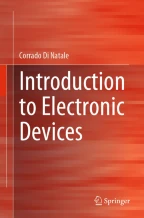
The concentrations of mobile charges (electrons and holes) in semiconductors are governed by statistical laws that provide their equilibrium average values. Equilibrium means that the average values are maintained by continuous fluctuations of mobile charges subject to creation and annihilation phenomena. Such events at least involve the transition from the states in the conduction band, the valence band and the doping atoms energy levels. These processes, called generation and recombination, are of outmost importance for the properties of devices. They operate so as to maintain the equilibrium condition, represented by the law mass action, when additional charges are injected into a volume of material. The generation of electrons in the conduction band, and holes in the valence band, occurs in intrinsic and doped semiconductors with an important difference: in the intrinsic semiconductor, the electrons and holes are generated together, whereas in doped semiconductors, to the generation of holes and electrons corresponds the generation of a fixed counter charge. It is straightforward that the process of generation is reversible, so that electrons and holes can recombine together in both intrinsic and doped materials. Hence, the charge density in the volume may change as a consequence of both current and generation/recombination events. The total charge variation in a volume of material is described by the continuity equation, which is a useful tool to determine the charge balance.
This is a preview of subscription content, log in via an institution to check access.
eBook EUR 46.00 Price includes VAT (France)
Softcover Book EUR 58.01 Price includes VAT (France)
Tax calculation will be finalised at checkout
Purchases are for personal use only